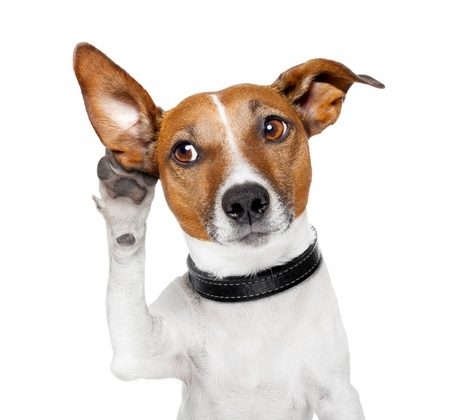The Road to Good Communication is Paved with Active Listening
In my business, we talk a lot about what to say, how to say it and when. The focus is on using words both on screen and in person to communicate a message. But there’s another side to the conversation.
While it is important to know how to talk, it is also important to know how to listen. The thing about being a good listener is that you will not only be better informed but also find it easier to get your message across. When people feel they have been heard, they are more open to hearing.
It’s about listening actively and taking the time to process what you’re hearing. But, as I’m finding, it takes practice.
Think about this: The average person talks at a rate of about 125 to 175 words per minute. I’ve been told I’m at the higher end of that range. Even so, most people can comprehend at a rate of up to 450 words per minute. That means even with my rapid-fire chatter, there are a lot of opportunities for minds to wander. And given how busy we are, my guess is our minds tend to wander off often as what we’re hearing triggers reminders of all that we need to be doing. At least mine does.
Calming the Chaos
This morning, my normally even-keeled daughter was in hysterics because she couldn’t get her homework to print. She told me last night that she needed it, but it hadn’t really registered. More accurately, I wasn’t really listening. Most likely, I responded with a hollow but reassuring, “Okay, dear.” Instead, I could have asked clarifying questions about when the homework was due and what steps needed to happen. We could have avoided the morning’s disruptive emotional turmoil.
It can make a difference in business too. Take for instance a networking meeting when you need to meet new people. Surprising to some who know me, I’m a little shy. What helps is being armed with questions. “I’m Jennifer, and you are?” “What brings you here today?” “What was the highlight of your day?”
When I’m working on being an active listener, I listen to their answers without judgement, and I ask questions about what they’ve said. Knowing I’m going to ask another question pushes me to listen carefully rather than formulating my response. I may also reiterate what I think I’ve heard, which gives the person a chance to clarify if I’ve misinterpreted or reassures them that I’ve really heard them. I have found it to be effective in all sorts of meeting including conference calls.
It’s also the foundation of doing good interviews, which is important for better writing.
Want to improve your listening skills? Here are some things to try:
- Listen without judging. Personally, I have found this to be more of a challenge than expected. It means slowing down and challenging my own conventional thinking.
- Ask clarifying questions without judgement. “Could you tell me more?” “What do you mean when you say…” “Why do you want to do that?” “What are your next steps?”
Reiterate what the person has said in your own words. “What I hear you saying is….” - Look at the speaker and use body language to indicate that you are listening. Your mind will follow your actions.
- If the speaker is emotional, try to put that emotion into words. “It seems this frustrates you.” “I sense you are sad about that.”
Here’s the secret that we don’t really want to talk about – it doesn’t always work. You can listen perfectly well and still walk away from the conversation dissatisfied. But it can make an awful conversation less awful and often it will make a great conversation out of what would have been a dud. So, what’s been the highlight of your day so far?
photo: Copyright www.123rf.com





2 Comments
Great post Jennifer, So many times the difference between a failed conversation and a great conversation is how we listen. I remember a quote I once heard is that we have two eyes, two ears, and one mouth and they should be used in that proportion.
March 30, 2017
My problem when asking a question of someone in a conversation is that my mind jumps ahead to the next question I plan to ask. I do not really listen to the answer I just sought.
April 12, 2017